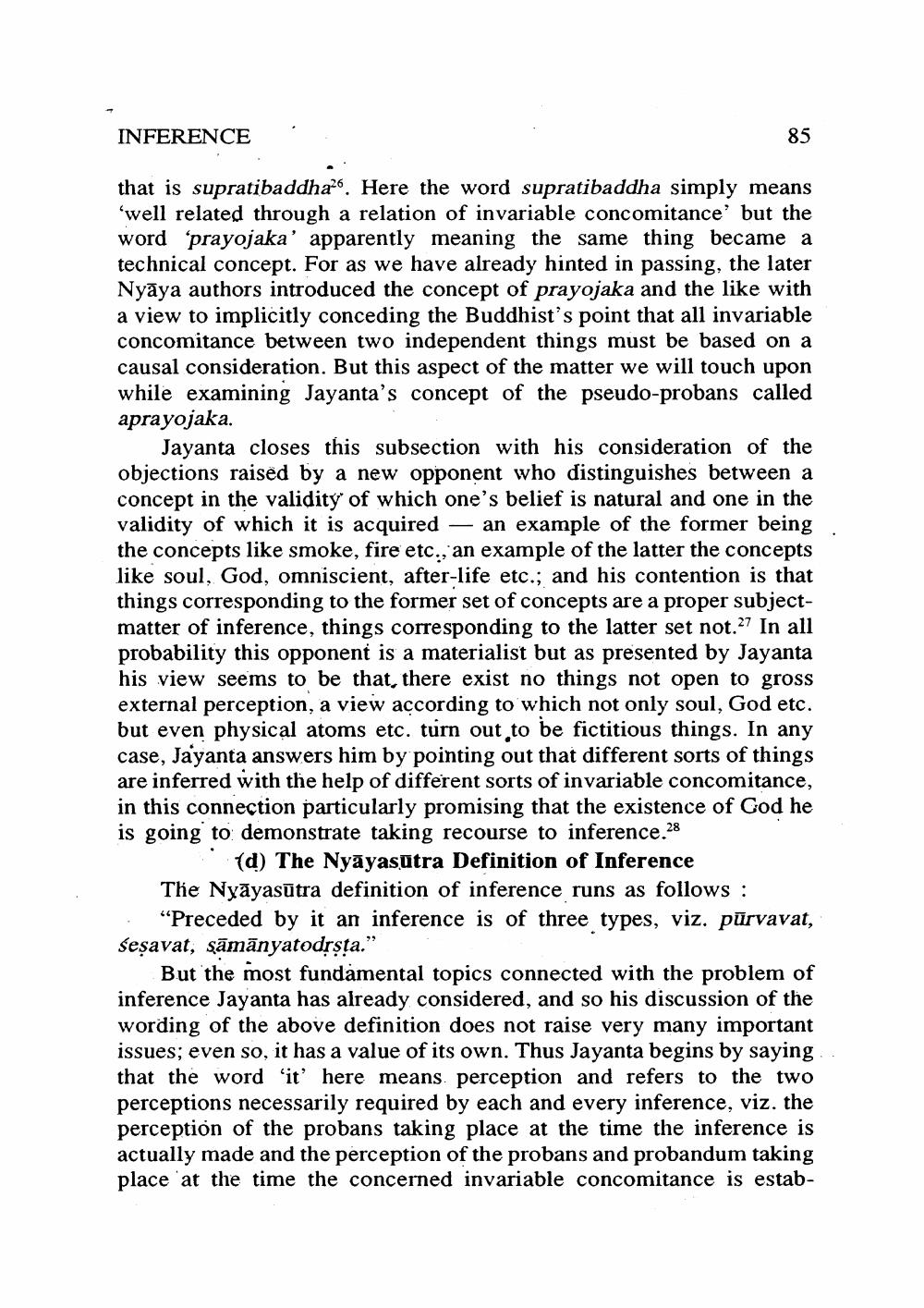________________
INFERENCE
85
that is supratibaddha 6. Here the word supratibaddha simply means 'well related through a relation of invariable concomitance' but the word 'prayojaka' apparently meaning the same thing became a technical concept. For as we have already hinted in passing, the later Nyāya authors introduced the concept of prayojaka and the like with a view to implicitly conceding the Buddhist's point that all invariable concomitance between two independent things must be based on a causal consideration. But this aspect of the matter we will touch upon while examining Jayanta's concept of the pseudo-probans called aprayojaka.
Jayanta closes this subsection with his consideration of the objections raised by a new opponent who distinguishes between a concept in the validity of which one's belief is natural and one in the validity of which it is acquired — an example of the former being the concepts like smoke, fire etc., an example of the latter the concepts like soul, God, omniscient, after-life etc.; and his contention is that things corresponding to the former set of concepts are a proper subjectmatter of inference, things corresponding to the latter set not.27 In all probability this opponent is a materialist but as presented by Jayanta his view seems to be that, there exist no things not open to gross external perception, a view according to which not only soul, God etc. but even physical atoms etc. turn out to be fictitious things. In any case, Jayanta answers him by pointing out that different sorts of things are inferred with the help of different sorts of invariable concomitance, in this connection particularly promising that the existence of God he is going to demonstrate taking recourse to inference.28
(d) The Nyāyasūtra Definition of Inference The Nyāyasūtra definition of inference runs as follows:
“Preceded by it an inference is of three types, viz. pūrvavat, seșavat, sāmānyatodrsta."
But the most fundamental topics connected with the problem of inference Jayanta has already considered, and so his discussion of the wording of the above definition does not raise very many important issues; even so, it has a value of its own. Thus Jayanta begins by saying that the word 'it' here means. perception and refers to the two perceptions necessarily required by each and every inference, viz. the perception of the probans taking place at the time the inference is actually made and the perception of the probans and probandum taking place at the time the concerned invariable concomitance is estab




